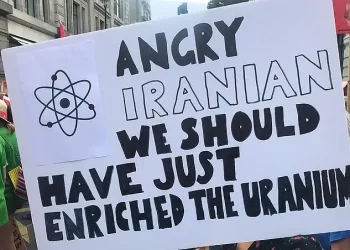The U.S. Treasury’s latest sanctions have intensified efforts to disrupt Houthi financing networks. By targeting individuals and entities facilitating illicit arms deals, laundering money, and shipping Iranian petroleum, the government aims to weaken the Houthi’s destabilizing activities in Yemen and the surrounding region.
A Global Network of Smuggling and Finance
The sanctions, announced by the Office of Foreign Assets Control (OFAC), focus on 12 individuals and entities spread across multiple countries, including Yemen, China, and Malaysia. These entities play crucial roles in funneling resources to the Houthi movement, enabling operations that destabilize the region.
Notable Targets Include:
- Hashem Ismail Ali Ahmad al-Madani: Governor of the Houthi-aligned Central Bank in Sana’a, Yemen, overseeing funds from Iran’s IRGC-QF.
- Ahmed Muhammad Hasan al-Hadi: A senior financial coordinator responsible for moving Houthi funds and disbursing payments within Yemen.
- Safwan Al-Dubai Company: A shipping firm based in Yemen and China, involved in transporting dual-use components.
Strategic Sanctions on Financial Systems
The Houthis have relied on complex financial schemes to sustain their operations. This includes using cryptocurrency wallets to bypass international restrictions.
OFAC’s inclusion of five digital wallets linked to IRGC-backed Houthi financial official Sa’id al-Jamal highlights the U.S. government’s push to disrupt modern financial evasion tactics.
Methods of Evasion:
- Leveraging unregulated cryptocurrency platforms.
- Operating through front companies in countries like Malaysia and Yemen.
This strategic move limits the Houthis’ ability to access international financial systems and facilitates enforcement of global sanctions.
Disrupting Illicit Shipping Operations
Houthi operatives have employed international shipping networks to smuggle weapons and dual-use components. Companies like Safwan Al-Dubai and Malaysia-based Blu Shipping have been instrumental in these efforts.
The sanctions also extend to vessels, including the YORGOS and RENEEZ, used to transport Iranian petroleum and weapons-related materials.
Quick Facts:
- Smuggling routes involve connections between Yemen, Somalia, and East Asia.
- Blu Shipping and Tefcas Marine serviced ships carrying illicit goods.
The U.S. Treasury’s action cuts off vital logistical support, severely impairing the group’s operational capabilities.
Implications for Regional Stability
The Houthis’ destabilizing actions have ripple effects throughout the Middle East, exacerbating humanitarian crises and regional tensions. These sanctions aim to reduce their capacity to procure weapons and finance operations.
The effort underscores a broader U.S. commitment to curbing terrorism and promoting peace in the region.
Summary of Sanctions Impact
Affected Area |
Action Taken |
Expected Outcome |
|---|---|---|
| Financial Systems | Freeze on assets, targeting crypto use | Restriction of Houthi financial movement |
| Shipping Operations | Sanctions on shipping firms, vessels | Disruption of smuggling activities |
| Global Networks | Targeted sanctions on key individuals | Weakening Houthi leadership and funding |
Looking Ahead
These measures demonstrate the U.S. government’s dedication to leveraging economic tools against entities undermining peace. By targeting both traditional and modern financial mechanisms, the sanctions highlight a robust, multifaceted approach to countering the Houthi threat.
As these sanctions take effect, their success will depend on sustained international cooperation and vigilance to prevent further evasion tactics.
Sources: THX News & US Department of the Treasury.









